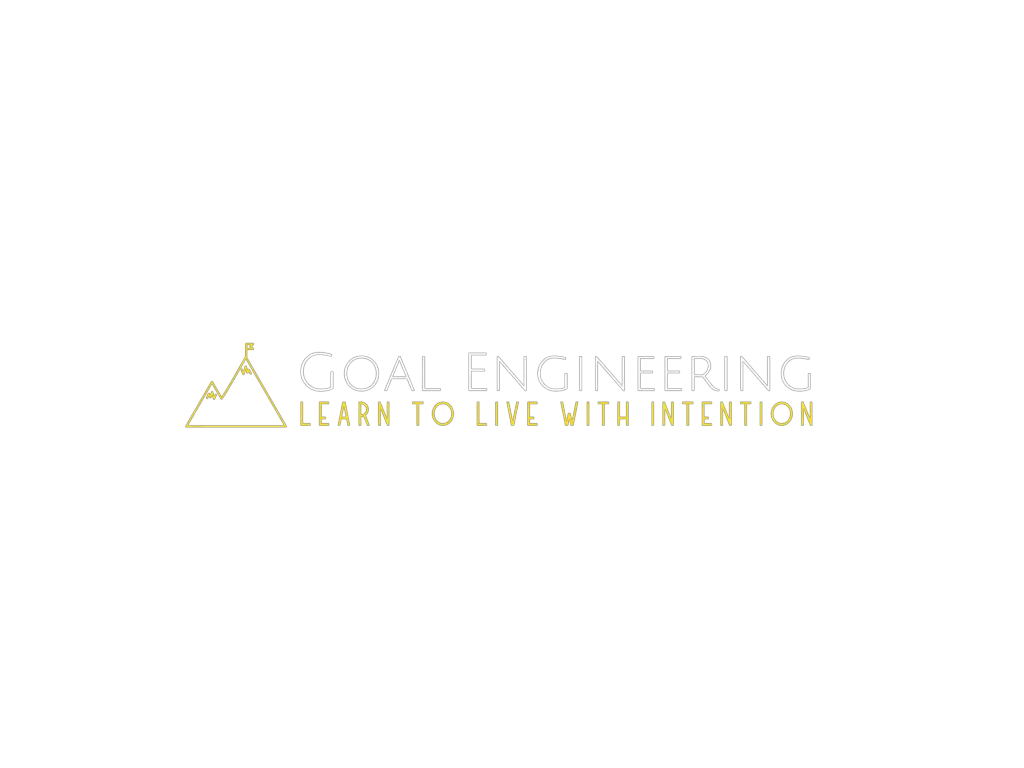In 2017 my last living grandma unexpectedly died in my first semester of graduate school. I was supposed to do an assignment that weekend but couldn’t focus to save my life and never turned it in. Difficulties are inevitable and most often they come when you least expect. But when you learn how to overcome setbacks in life, you can get back on track with your goals much faster.
To overcome setbacks, you need to practice intentional thinking through learned optimism, have self-compassion, and start small when you get back to work. Each time you experience a trial, begin by recognizing that it isn’t permanent, your personality didn’t cause it, and it doesn’t mean that all aspects of your life are a catastrophe. Examine how you’re feeling and which of your thoughts are true about it and which are not. Then, relax, let yourself take a break from trying to be productive, and begin slowly when it’s time to get back to your goals.
If all of that seems a little overwhelming, don’t worry, I’m about to get right into it in far more detail!
Your Misfortune Is Not Inescapable or Permanent, but You Default to Thinking That It Is
I’ve had bouts with depression on and off my whole life. One year, my wife recommended something she’d heard about in one of her college classes called Learned Optimism. I looked it up and fell down one of the best rabbit holes I’ve ever discovered.
Years ago a man named Martin Seligman was experimenting on dogs when he discovered something interesting. Some dogs that experienced a shock wouldn’t do anything to avoid it even if there was a way out. Why? Because they’d been trained to believe that it was impossible to make the pain stop.
Seligman didn’t just stop there though. He discovered that humans do the same thing. We often blame ourselves for our problems, think they’re permanent, and blow them out of proportion.
But the truth is that your difficulties do end. They aren’t due to a fault in your personality. And they definitely don’t mean everything in your life is a mess. Seligman refers to this as “permanent, personal, pervasive.”
Sometimes, like the dogs in his experiment, we also get stuck in a defeatist mentality when bad things happen in life. Your many failed attempts at your goals, for example, makes you have a “why bother” attitude.
The reality is, you can keep trying an infinite number of times. You’ll always be able to improve your situation. The only difference is the way you choose to look at it.
There’s even a way to retrain your brain to default to recognizing why things aren’t so bad, and I’ll show you how to do that next.
Practicing Learned Optimism Helps You Overcome Setbacks Through Intentional Thinking
Seligman teaches the “ABCDE” method for coming out on top in difficult circumstances. Here’s what the letters stand for:
- A is for Adversity, or what happened. An example might be failing a test.
- B is for Belief, or your thoughts about the meaning of what happened. You might, for instance, think that failing the exam means you’re stupid and will never graduate.
- C is for Consequence, which is the way you feel after your beliefs. In this same scenario above, your thinking patterns would probably make you feel discouraged and like you want to give up.
- D is for Disputation, which involves examining the evidence for your beliefs and looking for the truth about why it’s not as bad as it seems. You could think about how you didn’t fail the last test and that this one was just especially hard and your friend did poorly on it too. Also, explore the reasons why it’s not permanent, personal, or pervasive.
- E is for Energization, or how you feel better after looking at the facts.
I refer to it as “intentional thinking” because you’re intentionally guiding your mind in the direction you want it to go, rather than just letting it think whatever it wants, which is usually incorrect.
As you can see in the example I used to explain the method, it’s a powerful tool to help you overcome setbacks simply by reframing your thinking. You can experience it yourself with any problem you encounter, big or small.
I used this with great success when my daughter was born six weeks early and spent a couple of weeks in the NICU, for instance. It was still tough, but recognizing how it wasn’t permanent was especially helpful.
How to Practice Learned Optimism Yourself
The easiest way to run through the ABCDE method when you’re first learning it is to write it all out. I started by writing a note on my phone and that helped me get it down really well.
Anytime I had something go wrong, I could immediately just run through the steps to practice intentional thinking.
I’ve repeated it so many times over the last few years that it’s now second nature. Anytime something difficult happens, I just run through the ABCDE’s in my head and I feel much better.
Try writing down the ABCDE’s for at least one problem you encounter each day for a week to get it figured out.
The book Learned Optimism gives more details on each step, but especially how to dispute your negative thoughts effectively. I highly recommend you get a copy of your own to make this a habit.
How to Overcome Setbacks in Life Step 2: Have Self-compassion By Being Patient With Yourself
Learned Optimism is important but it’s only part of the picture. The reality is, there are two “modes” you can go into whenever a problem arises:
- Fix it
- Feel it
Every time something difficult happens to my wife, I almost always default to fix-it mode. It’s pretty common for guys to do this, by the way. But more often than not, what she needs is for me to switch over to “feel it” mode and just listen.
This can and often does happen in your relationship with yourself, even if you don’t realize it.
If you’re not ready to get past the raw feelings of a breakup, for example, running through the ABCDE’s of Learned Optimism will do you no good. You’re going to be arguing with yourself at each step because the emotions are still to strong. You need to let them flow, uninhibited, like grief.
You’ve heard of the stages of grief. What you feel after something hard is almost always the same thing in some form or another.
Even if it’s as simple as getting pulled over by a cop you start to deny it, then you feel bad, and at some point, you want to cry or maybe even do start crying. Eventually, though, these steps always help you feel better.
But if you try to smother these feelings, they’ll only get worse.
Practice self-compassion by patiently letting yourself run through all the stages of grief. Give yourself as long as you need. Once you’re done, run through the ABCDE’s and your perspective will be fresh to get back to your goals again.
How to Overcome Setbacks in Life Step 3: Go Slow When You Start Up Again and Don’t Try to “Catch Up”
When you start your goals again after a big setback, take it slow. I give you permission to relax a little bit if that’s what you need. If you can, let go of what you missed. Each day, just get done what you normally would need to for that day.
Consider what it takes to boil a frog. If you try to do it by boiling the water first, like you’d do when making pasta, the frog will just jump out. It only works when you put the frog in the water first then slowly turn up the heat.
Your goals work the same way, and especially after getting back on your feet after major setbacks. If you immediately try to jump back in at full speed after a trial, you’ll fall on your face. You have to slowly increase the temperature if you want to succeed.
It’s easy to get stuck in the “I have to catch up” trap, but try to avoid it whenever possible. Here are some tips on how to do this effectively:
- Delegate tasks to others or ask for help. I’ve asked my parents for help watching my kids to free up time for my wife to help me with work projects that she can do, for instance.
- Always try to get ahead. I know this one is tough because it’s really common to be behind all the time. But like having a rainy day fund protects you against financial surprises, this can save your goals when unexpected setbacks happen. And aren’t they all unexpected anyway?
- Cut your goals down. Jon Acuff talks about how to do this in his book Finish. The perfectionist in you wants to do it all, but that’s not practical. Eliminate what you think you have to catch up on wherever possible. If it’s work tasks that you can’t cut out completely, ask for a longer timeline.
It’s not always easy to do these things, but it’s way easier to deal with hard things when you do.
I Know These Ideas Work Because I’m Practicing Them Right Now
The original reason I wanted to write this article was that a couple of weeks ago, my wife gave birth to our third child! We love our little guy, are super excited to have a new addition to the family. Plus he’s adorable:

I love the kid like crazy but it’s been difficult to cope with the unexpectedness of his 5-week-early arrival. Not that it’s his or anyone else’s fault, of course! I also hadn’t anticipated how hard it would be to get back to my goals after taking some time off to focus on my family.
To make things worse, he’s still in the NICU just like my daughter was. This time it’s a lot easier because we know the drill, but it’s still always a challenge.
When he was born, I reorganized all of my priorities to focus all of my energy on my family. I temporarily let go of my efforts to eat healthily, exercise, write blog posts, do my other work, and more.
But this week, it’s time to get back to everything and it’s not been easy. However, because I know how to boil a frog, I also know how to “boil away” the sluggishness after a challenge like this.
Conclusion
To summarize, here are my three main ways to overcome setbacks in life:
- Practice intentional thinking with Learned Optimism.
- Have self-compassion by letting yourself experience the emotions.
- Start small and cut away what you think you have to “catch up on.”
I know these work because I’ve done them myself and I’m even doing them right now.
Whatever difficulties you’ve been through or are going through now, I’m confident that you can practice these to get through it and come out on top!





